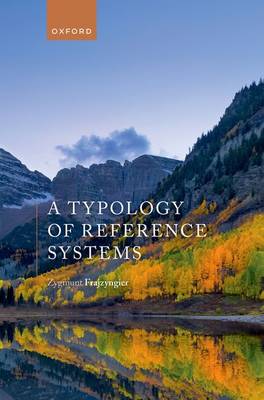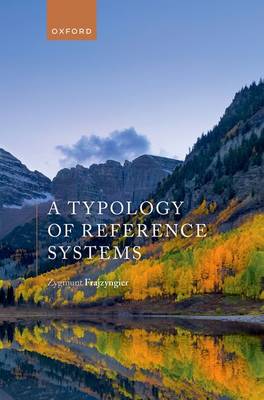
- Afhalen na 1 uur in een winkel met voorraad
- Gratis thuislevering in België vanaf € 30
- Ruim aanbod met 7 miljoen producten
- Afhalen na 1 uur in een winkel met voorraad
- Gratis thuislevering in België vanaf € 30
- Ruim aanbod met 7 miljoen producten
Omschrijving
This volume offers a typology of reference systems across a range of typologically and genetically distinct languages, including English, Mandarin, non-literary varieties of Russian, Chadic languages, and a number of understudied Sino-Russian idiolects. The term 'reference system' designates all functions within the grammatical system of a given language that indicate whether and how the addressee(s) should identify the referents of participants in the proposition. In this book, Zygmunt Frajzyngier explores the major functional domains, subdomains, and individual functions that determine the identification of participants in a given language, and outlines which are the most and least frequently found crosslinguistically. The findings reveal that bare nouns, pronouns, demonstratives and determiners, and coding on the verb ('agreement') have different functions in different languages. The concluding chapters offer explanations for these differences and explore their implications for the theory and methodology of syntactic analysis, for linguistic typology, and for syntactic theories.
Specificaties
Betrokkenen
- Auteur(s):
- Uitgeverij:
Inhoud
- Aantal bladzijden:
- 418
- Taal:
- Engels
Eigenschappen
- Productcode (EAN):
- 9780192896438
- Verschijningsdatum:
- 20/04/2023
- Uitvoering:
- Hardcover
- Formaat:
- Genaaid
- Afmetingen:
- 163 mm x 229 mm
- Gewicht:
- 771 g

Alleen bij Standaard Boekhandel
+ 483 punten op je klantenkaart van Standaard Boekhandel
Beoordelingen
We publiceren alleen reviews die voldoen aan de voorwaarden voor reviews. Bekijk onze voorwaarden voor reviews.










